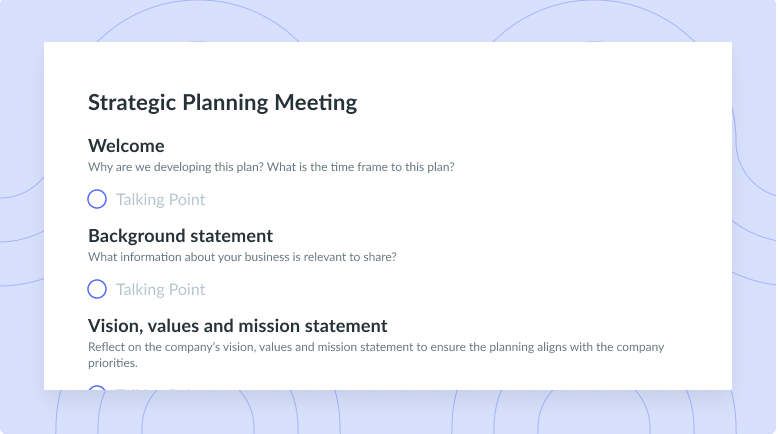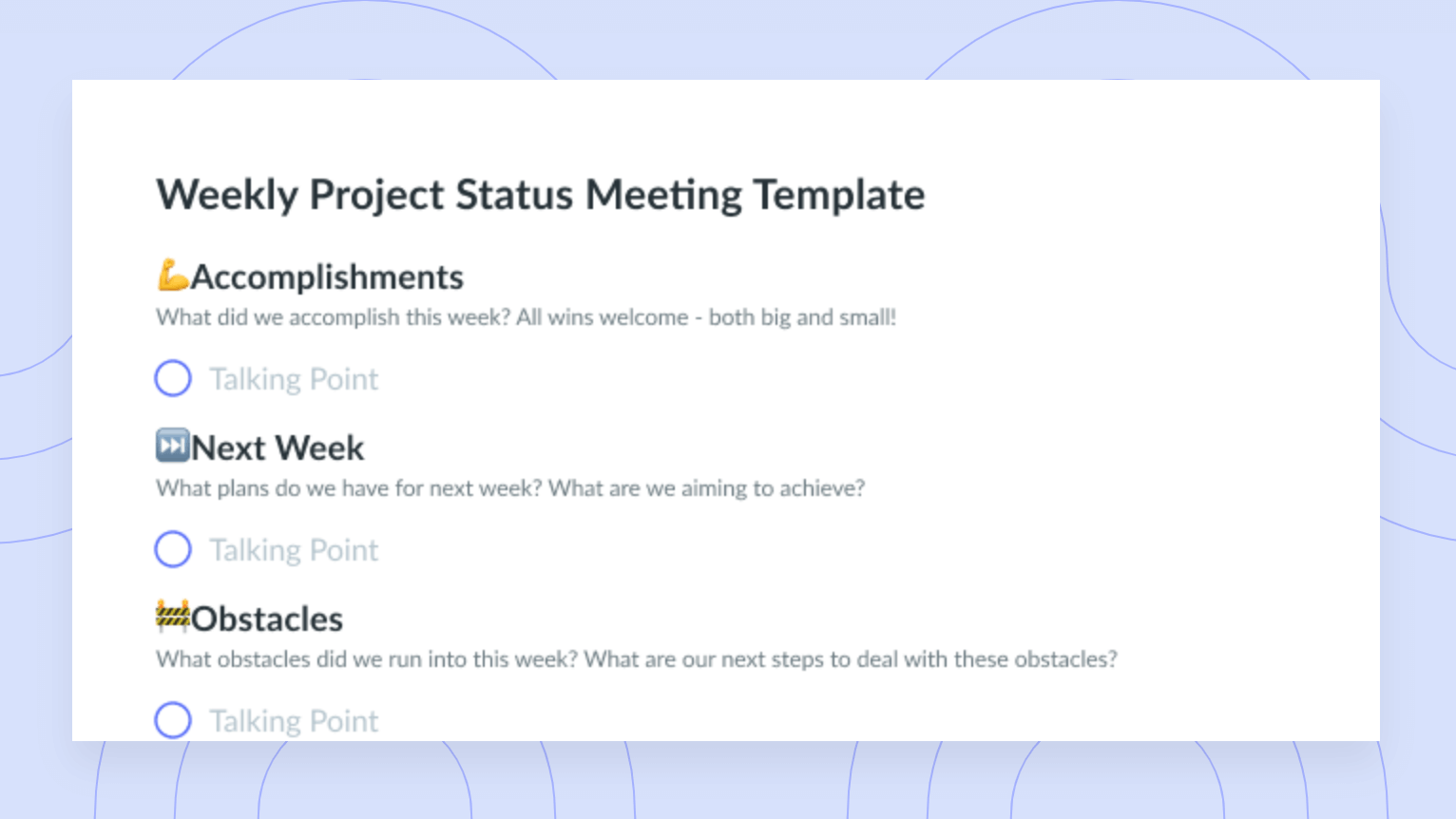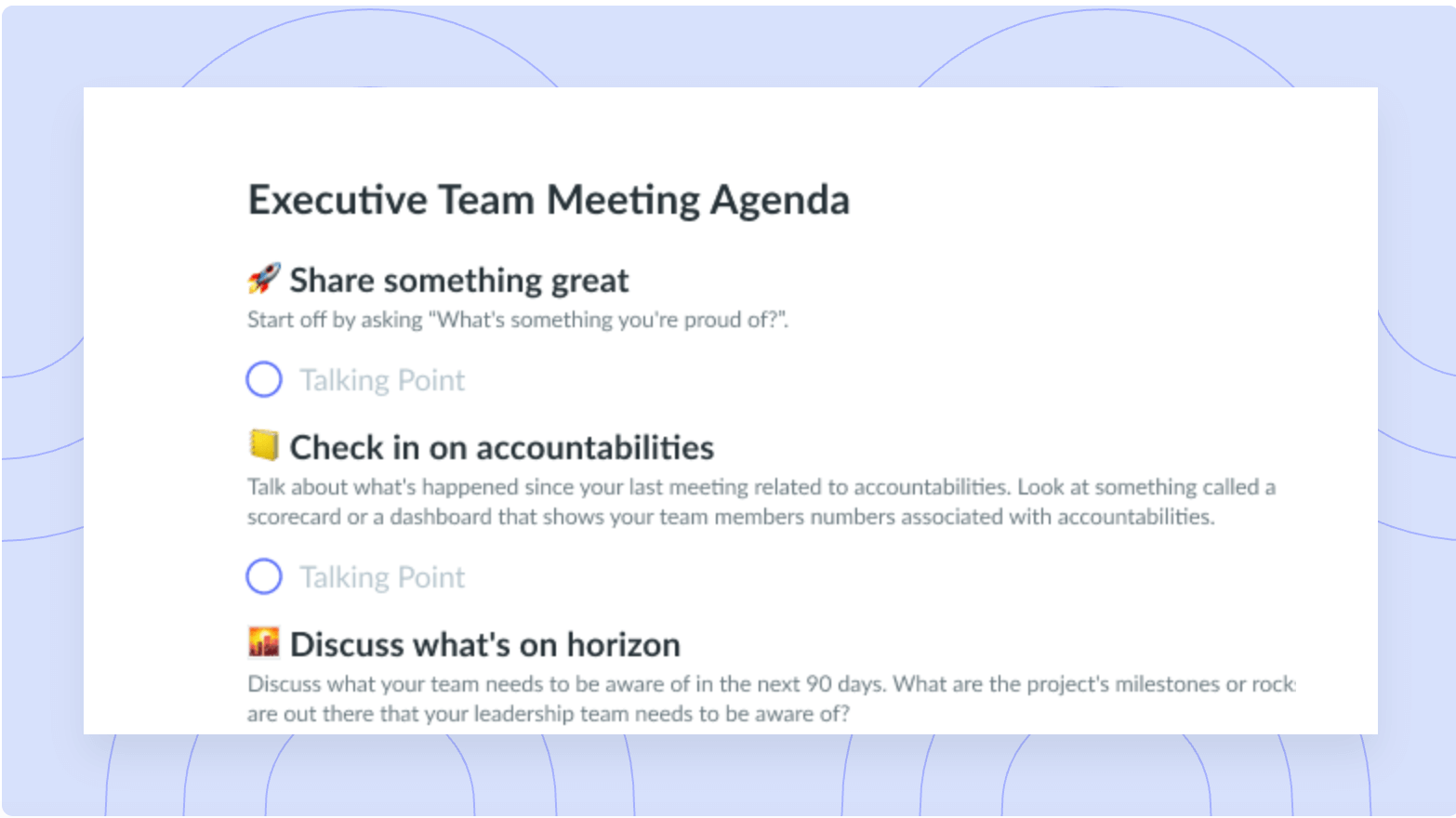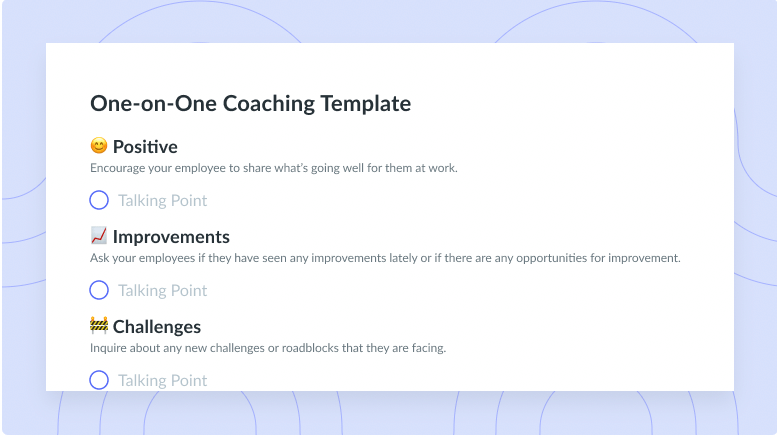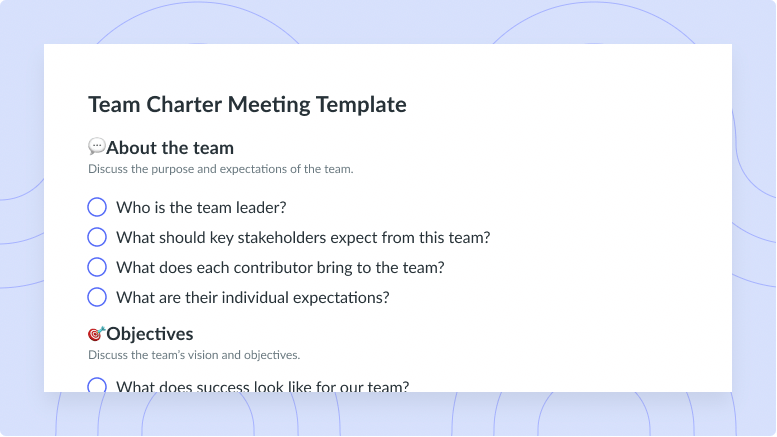How to Set Personal OKRs to Reach Your Goals
Create a system of personal success by transforming your lofty goals into actionable results.
With each new season of life comes a new set of goals. Whether it’s a new year, new quarter, or new projects at work, you likely have a few goals on the go at any given time.
It’s easy to choose a goal. We often hear people say things like, “I want to get in shape, become an avid reader, and start my own business,” but the follow-through is rarely as successful as the goal planning itself. This is because individuals struggle most with creating a system that allows them to take smaller steps to achieve their goals in the long term.
So, how can you take your idealistic plans and finally commit to making real change? Let’s talk about OKRs.
- What are personal OKRs?
- Benefits of using OKRs for personal goals
- How to write personal OKRs
- Examples of personal OKRs
- What to avoid when setting personal OKRs
What are personal OKRs?
“OKR” stands for “Objectives and Key Results” and is a methodology that you can use to transform your biggest goals into realities. Developed by the late CEO of Intel, Andy Grove, the OKR framework involves defining clear goals that specify what you want to accomplish (objectives) and then breaking each goal down into actionable key results.
Rather than focusing your energy on lofty ideas for the future, you should use the OKR framework to help you implement a system of success using measurable steps.

Write it down
Keep all your goals organized in one place with a tool like Fellow! Having easily accessible notes will allow you to better track progress and hold yourself accountable.

Benefits of using OKRs for personal goals
- Uses the power of microtasking. Microtasking means breaking down large tasks into smaller, more manageable steps to make the overall project feel less overwhelming. Microtasking is a powerful productivity tool because you’ll feel accomplished as you frequently check small items off of your to-do list.
- Makes you a master of scheduling. You’ll have to carefully plan your schedule to fit in key results. If you currently struggle with time management or organization, using OKR methodology may be your saviour.
- Helps you prioritize what matters. It’s simple: when you have a timeframe and detailed list of action items to achieve a specific goal, it’ll be harder to justify putting off the task in favour of something else.
- Makes goal setting more realistic. Let’s face it, we’re all guilty of setting unachievable goals and getting frustrated when we miss our self-imposed deadlines. Using OKRs will enable you to be more mindful with your goal setting and allow you to discover what you’re actually capable of completing in a certain period of time.
How to write personal OKRs
1 Choose your objectives
Take a moment to think about your mission. What’s something you want to accomplish, but keep putting off because you know that following through will be difficult? To begin, the objective can be vague. Maybe you want to start living a healthier lifestyle, or you want to save up enough money to invest in property by the end of the year. No matter your goal, it’s important that you take the time to identify something that will change your life for the better.
2 Plan the key results
Now you’ll need to break your goal into key results. Make sure that your KRs are measurable, timebound, and specific. For example, within the objective of wanting to live a healthier lifestyle, you may be inclined to make “go for regular hikes” your first key result. This type of vague language should be avoided, because the lack of specificity makes it easy to ignore and stick to your status quo. To make it impactful, you could create a KR like “hike 20 times this winter,” or something else that is specific and challenges you to strive for higher personal standards.
Then, plan out when you’ll work to achieve your KRs (i.e., when you will hike each week), put your plans in your schedule, and stick with this timeline. You should now have a realistic plan in front of you that shows exactly what you need to do to achieve your objective.
3 Track your progress
The final and most rewarding part of OKRs is tracking your progress. With Fellow’s objectives tracker, you can stay on top of your goals by tracking your objectives as part of your meeting workflow. OKRs are measures for change, so with a bit of persistence, you’ll notice your progress moving at a quicker rate than if you had gone about your business as usual.
Remember to also celebrate the small wins as you track your progress! Check off a box each time you go on that hike or are making progress to achieve a key result. Each time you hit a milestone, your brain will get a dose of dopamine – the brain chemical responsible for motivation – and your desire to succeed will increase.
Examples of personal OKRs
Find a new job by the end of the year
If your objective is to make a career move, some examples of actionable key results could include: networking with 10 individuals that have positions in your field at or above your desired level, completing five job interview preparation sessions with a mentor, reaching out to five hiring managers or recruiters in your network by May to discuss opportunities, or applying for 10 open positions online by June.
Cut down fast food spending by 50 per-cent by Q3
Spending money on unhealthy foods can not only drain your bank account and energy levels, but also negatively impact your health. If your ultimate goal is to curb your unnecessary spending on unhealthy takeout, your key results could include: learning to cook 20 healthy meals at home, limiting your takeout to once per week for the next four months, or packing your lunch every day of the workweek until July.
Remember that “cutting down” doesn’t mean stopping entirely. The purpose of key results is to change your habits, not be restrictive. Don’t let small slip-ups prevent you from moving forward with your goal!
Learn to speak a new language
Within the objective of learning a new language, four of your outlined KRs may include: researching and investing in a language app on your phone, attending a semester-long language course at a local college or university, immersing yourself in the language for one hour per day, or practicing with a native speaker of the language once per week.
What to avoid when setting personal OKRs
Being too general
Generalization is just a step towards procrastination. The more general your key results, the less motivated you’ll be to get started. Having specific OKRs will give you a clear pathway to success and make you want to keep your eyes on the prize. As you work through your key results, it should never be unclear whether you’ve reached your objective. You should know when your effort has paid off and your objective has been met; then, it’s time to celebrate!
Having unrealistic key results
Idealism can be both a strength and a weakness when you’re setting goals. When you focus on the big picture, you may develop key results that challenge you or make you lose confidence in your abilities. You don’t have to start small, but you also want to make sure that you can stay driven throughout the process.
As you complete your key results, ask yourself if your KRs pushed you to meet your goal in the timeframe you set. If not, be patient with yourself and don’t get discouraged! Use this setback as motivation to set more specific and effective key results as you move forward. Remember, realistic before idealistic.
Setting and forgetting
It’s a tale as old as time itself: a person approaches a new season of life and thinks, “this time will be different! This time, I’m going to get in shape, eat properly, be more mindful, organize my life, and become the best version of myself!” The individual may also go on to buy a fancy agenda or calendar, sign up for a yoga class, and maybe even make a vision board. The issue here is that good intentions don’t get results, actions do.
If the person doesn’t actually write in the agenda, attend the yoga class, or use that vision board as a motivator to get started, their efforts are just a waste of money and time. So, set your objective, but don’t forget to use key results that are timebound and to hold yourself accountable to the deadlines you initially set. The only time you should forget it is when you’ve reached your goal and the good habits have become automatic.
Parting Advice
Our culture may be obsessed with goal setting, but we often take the wrong approach. Leave your comfort levels behind, and know that you’ll achieve what you set out to do this time. OKRs provide a straightforward system to achieve big goals, while challenging you to focus on the small steps and build better habits along the way.
You don’t need more self-help books or motivational podcasts, and you definitely shouldn’t wait for the perfect moment to start. With an actionable plan to succeed, you can inspire yourself to reach levels of innovation and productivity you didn’t think possible.









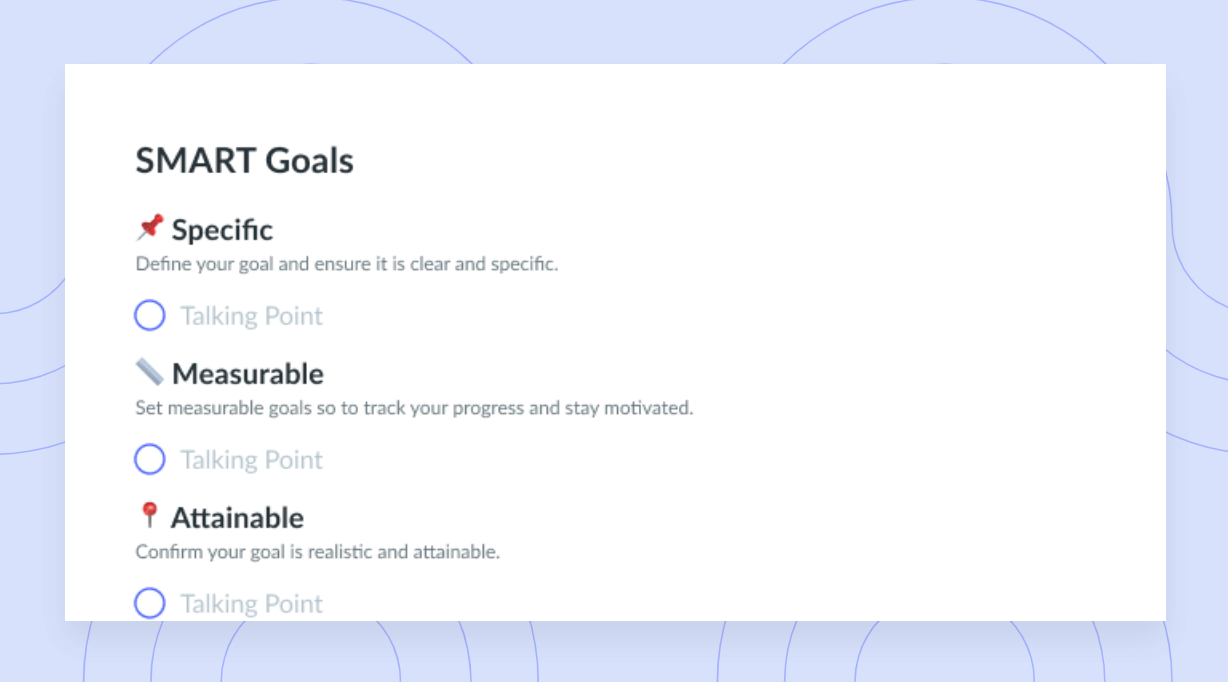
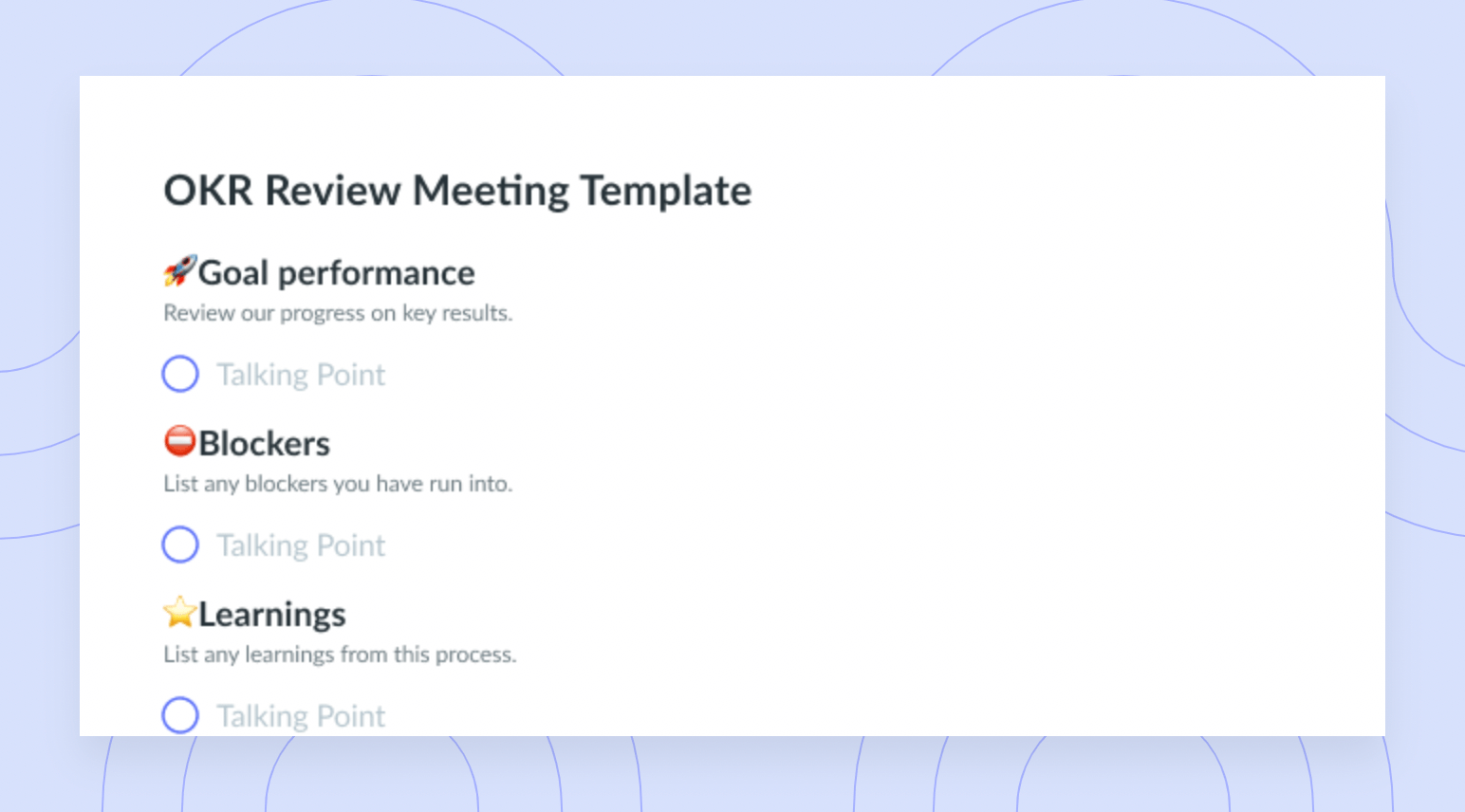
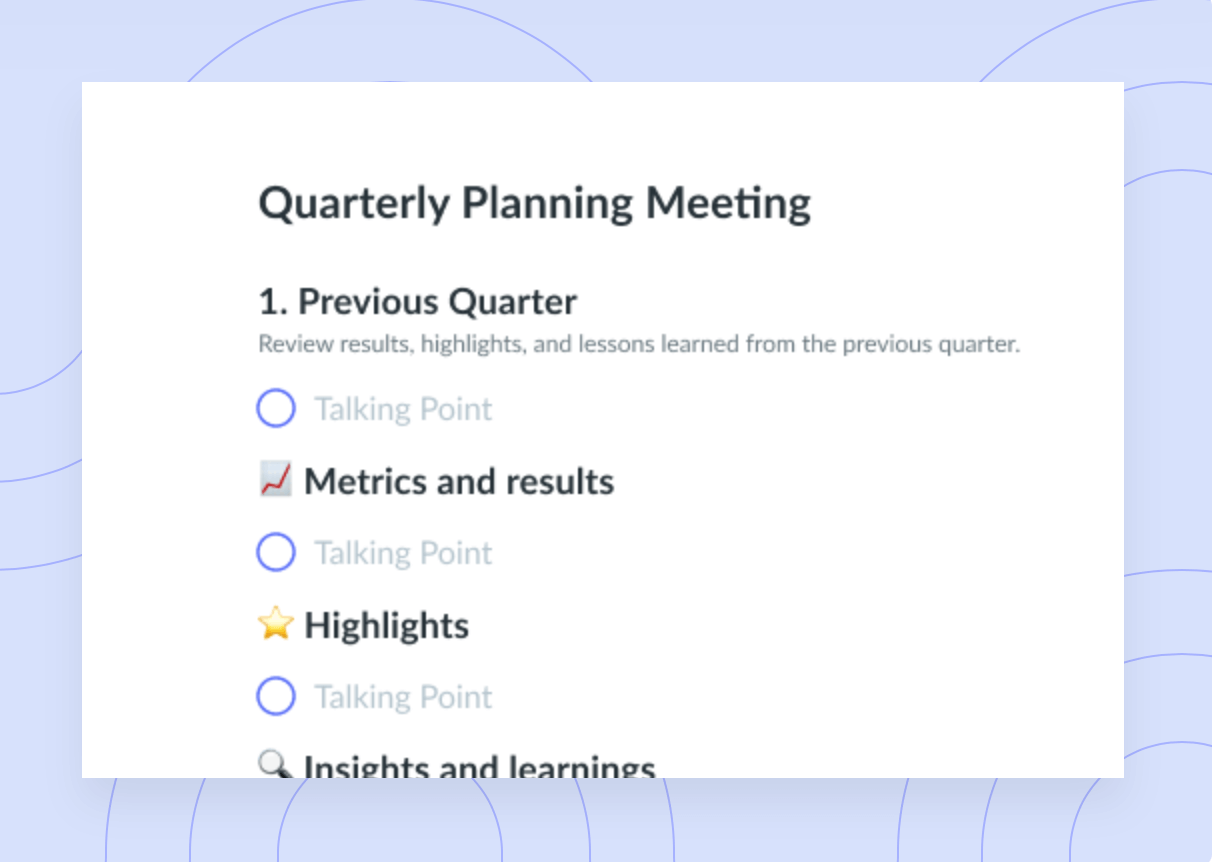
![Incoming Client Interview [Legal Clinic] Template](https://fellow.app/wp-content/uploads/2021/09/Incoming-Client-Interview-Legal-Clinic-preview.png)
